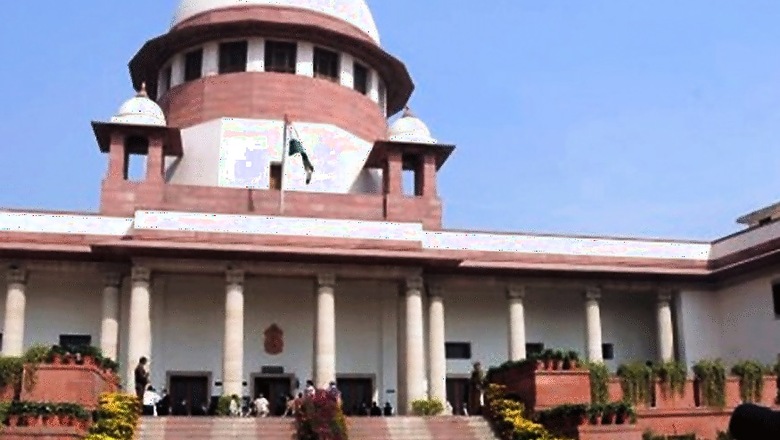
views
New Delhi: There is no need for privacy in courtrooms as nothing private happens there, the Supreme Court on Tuesday said as it favoured early installation of closed circuit televisions in the courts.
The top court said the installation of CCTV cameras in the courts would be in larger public interest, discipline and security.
A bench of Justices A K Goel and U U Lalit also sought a report from the Centre on the progress made on the issue in compliance with its earlier order in the matter.
"What privacy? This is not a case of privacy. We dont need privacy here. Judges don't need privacy in court proceedings. Nothing private is happening here. We all are sitting in front of you," the bench observed.
Additional Solicitor General Pinky Anand, appearing for Centre, said the Ministry of Law and Justice has to sanction a proposal for financial outlay, which could be accorded any time soon.
She said that installation of CCTVs and video recording of court proceedings "is important" and would be beneficial for all.
"Don't delay it. This step is in larger public interest, discipline and security. You file the report by November 23," the bench said and posted the matter for further hearing on that day.
On August 14, the apex court had favoured installation of CCTV cameras with audio recording of all court proceedings, including in its own complex along with those of the high courts and tribunals, to bring in transparency.
The top court had then observed that the constitutional courts in other countries had audio and video recording, as it was not a matter of privacy of judges.
It had directed the Centre to submit a feasibility report on the installation of CCTV cameras with audio recordings in courts and tribunals.
The top court had cited the example of judicial proceedings in the US Supreme Court, saying all these were available publicly, even on the Youtube.
It had said that a Court of Record meant that each and every thing should be recorded as long as it does not obstruct the proceedings.
The top court had, however, made it clear that the footage of the CCTV camera or the audio recording will not be made available under the Right To Information Act and not supplied to anyone without permission of the concerned court.
It had included tribunals for the first time, besides the courts, for installation of CCTVs with audio recording facility.
The apex court was hearing a plea filed by one Pradyuman Bisht seeking audio and video recording of court proceedings in order to bring transparency.
On March 28, the apex court had for the first time directed the installation of CCTV cameras without audio recording in courts of two districts of each State and Union Territory.
It had said that CCTV cameras can also be installed at important locations of the court complexes as may be considered appropriate and their monitor should be kept in the Chamber of the concerned District and Session Judge.
The top court had granted liberty to the high courts to decide the location of the district courts and any other issues concerning the matter and said that the installation should be completed within three months.



















Comments
0 comment